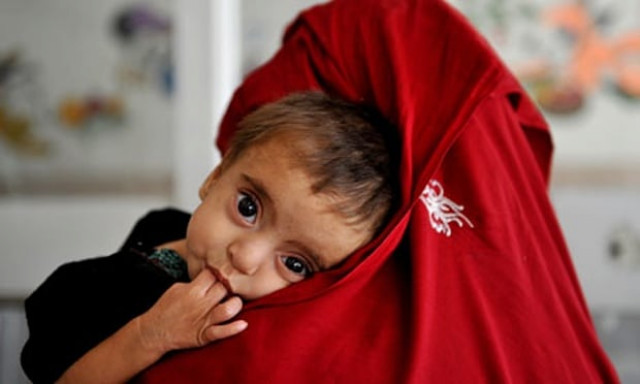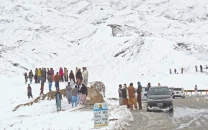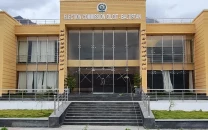G-B children suffering from malnutrition, say health experts
Food insecurity is another major problem being faced by residents of the mountainous region

PHOTO: AFP
This chronic poor nutrition status is due to deficient intake of some of the essential micronutrients like vitamin A, vitamin D, Zinc, folic acid and iron during critical stages of physiological changes of pregnancy and child growth.
“This is all due to poor maternal and child health care and practices right from conception of pregnancy to second birthday of the child in just 1,000 days, labeled as the windows of opportunity,” said Dr Nadir Shah, programme consultant Scaling Up Nutrition (SUN) Unit in the Department of Planning and Development.
“Similarly 59 per cent are underweight, 33 per cent vitamin D deficient and 72 per cent are vitamin A deficient,” Dr Nadir shared the startling statistics while addressing an orientation meeting held in Gilgit and attended by experts from various government and non-governmental organisations.
SUN movement is a country lead global effort, focusing on nutrition in the first 1,000 days of a child’s life.
He said that malnutrition status indicators of mother and child in G-B are some of the highest in South Asian countries.
“About 75 per cent children below the age of five are stunted due to malnutrition,” said Dr Nadir Shah, referring to National Nutritional Survey 2011. He said food insecurity is yet another issue which has haunted 60 per cent households in the region.
Muhammad Abbas, focal person for nutrition programme in G-B, said after independence G-B was not included in the nutrition surveys until 2011 though the first such survey in rest of Pakistan was conducted in 1952.
Abbas said food testing laboratory was set up in Gilgit recently, and a number of substandard food items were confiscated after testing.
Abbas said that only 17 per cent children had access to soap while 64 per cent population had worm infestation in G-B.
According to the Pakistan National Nutrition Survey-2011, around 44 per cent of children under five are stunted and the Pakistan Demographic and Health Survey 2012-13 reveals that Pakistan has the highest bottle-feeding rates and lowest exclusive breastfeeding rates in South Asia.
Published in The Express Tribune, March 19th, 2017.


















COMMENTS
Comments are moderated and generally will be posted if they are on-topic and not abusive.
For more information, please see our Comments FAQ